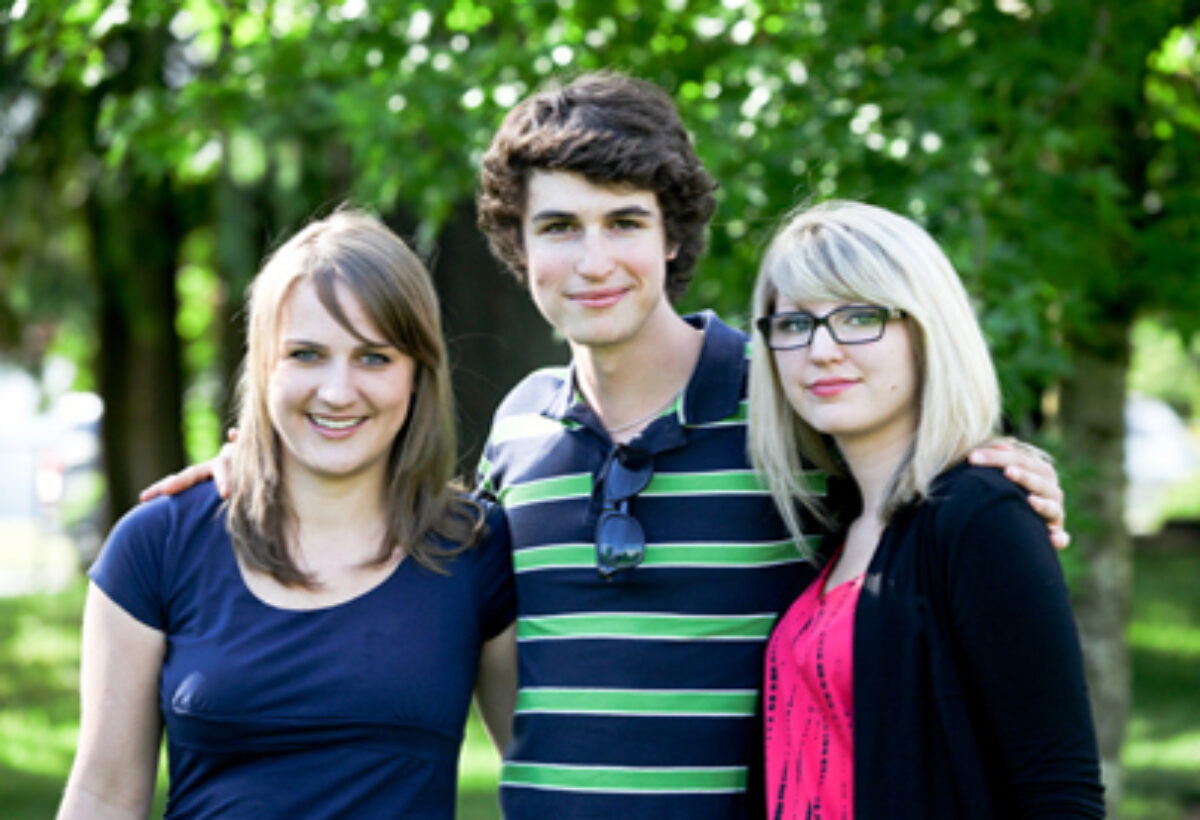Students use high school training to save a teen

Eighteen-year-old Levi was training hard to apply to be a B.C. forest firefighter. But on one of his runs, he collapsed in sudden cardiac arrest.
University students Candace and Cassie were out for a jog in the park near their old high school that same day. “We were taking our regular route when things changed unexpectedly,” remembers Candace. “All of a sudden, we heard two women behind the baseball field shouting for someone to call 911.”
We don't understand that everything can be taken from us in a moment. From an 18-year-old's perspective, when you're playing sports at your peak, you don't ever think that something this life altering can happen to you.
“He was really white. I’d never seen anybody that colour before. It was a shock,” describes Cassie. “But, I remembered my CPR training: I stabilized his head and did mouth to mouth while Candace started chest compressions. We did this between the four of us, and his colour really improved.”“We ran over and found the women doing CPR on a young man,” recalls Cassie. “We could tell the women were getting tired, so Candace and I jumped in to help.” The women who had started CPR were Heather and Daryle.
Candace, Cassie and in fact, Levi too had all learnt CPR from their Grade 10 physical education teachers at their secondary schools where the ACT Foundation had established the program.
At the hospital, Levi was diagnosed with Long Q-T syndrome, a rare inherited, heart rhythm disorder that can cause fast, chaotic heartbeats, and in some cases, sudden cardiac arrest. Levi now has a defibrillator implanted to help regulate his heart.
“These two girls, even though I shared very little time with them in my life, feel like sisters to me. The minutes they spent bringing me back to life, what an impact,” says Levi. “It happened to me and it’s happened to so many other kids. Many deaths could have been prevented if somebody on the court, somebody in the stands, just somebody, had CPR training.”
Cassie agrees, “It’s so important for everyone to learn CPR because, as in our case, it can save a life. By exposing kids at a young age, it brings awareness and raises their confidence level.”
“I mean it’s phenomenal,” says Levi. “I survived and I was running on a rainy day in North Vancouver by myself. The area where I was seen, beside a high school, is probably the only area where I could have been saved. It’s pretty miraculous in many ways.”
“We don’t understand that everything can be taken from us in a moment,”says Levi. “From an 18-year-old’s perspective, when you’re playing sports at your peak, you don’t ever think that something this life altering can happen to you. I don’t feel any different, now,” he continues. “I still see the kid that was running everyday in the rain, and training, and doing pushups. I still see the “me” that died that day.
The ACT High School CPR Program was made possible in Candace, Cassie and Levi’s school thanks to generous community and provincial-level support that enabled the donation of mannequins, teacher training as Instructors, and curriculum resources. The lead community partners are the First West Foundation, BC Hydro Employees’ Community Services Fund (HYDRECS) and RBC. Provincial partners are BC Ambulance Service and the Ambulance Paramedics of BC – CUPE Local 873.
The ACT Foundation’s national health partners, supporting the program in B.C. and throughout Canada are: AstraZeneca Canada, Pfizer Canada and Sanofi. They provide ACT’s sustaining funding and are committed to the Foundation’s national goal of promoting health and empowering Canadians to save lives.
The Advanced Coronary Treatment (ACT) Foundation is an award-winning, national charitable organization dedicated to establishing CPR and AED training in high schools across Canada. ACT raises funds to donate mannequins, teacher training, and resources to schools, and guides schools in program set-up and long-term sustainability. High School teachers teach CPR to their students as a regular part of the curriculum. More than 1.8 million youth have been trained in CPR through this lifesaving program to date.
